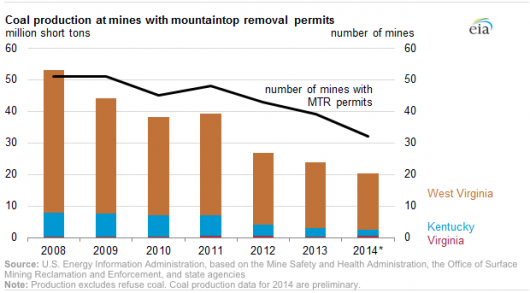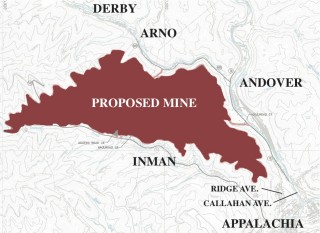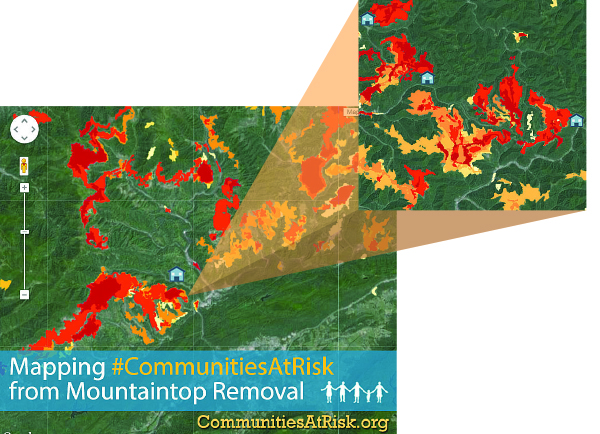Posts Tagged ‘Mountaintop Removal’
How much progress are we making on ending mountaintop removal?
Last week, the U.S. Energy Information Administration pointed to a steep decline in coal produced by mountaintop removal mining. But
a closer examination of the data calls into question the adequacy of the legal definition of “mountaintop removal” and, more importantly, demonstrates that much more work is needed to truly end destructive mining practices in Central Appalachia.
A “golden opportunity” in disguise
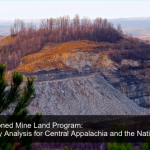
Ison Rock Ridge and land ownership in Appalachia
Earlier this summer, our friends at Southern Appalachian Mountain Stewards celebrated the defeat of a proposed mountaintop removal mine along Ison Rock Ridge in Southwest Virginia. But although the imminent threat of mining is past, the land on Ison Rock Ridge is still owned by an absentee landholding company in the business of leasing out tracts to coal operators for mountaintop removal.
Read MoreEIA: Mountaintop removal coal production down
The U.S. Energy Information Agency (EIA) published a blog post today showing that coal produced by mountaintop removal mining in Central Appalachia decreased by 62 percent between 2008 and 2014. Demand for Central Appalachian coal will continue to decline, making further progress inevitable. But we won’t end mountaintop removal by relying on the market alone.
Read MoreCommunities at Risk from Mountaintop Removal
A new interactive map shows that, even as Appalachian coal production declines, mountaintop removal coal mining is encroaching on many communities in the region.
Read MoreLawsuit Defends Blackside Dace
A federal lawsuit filed in Knoxville, Tenn., alleges regulators failed to meet legal obligations to protect a threatened fish endemic to Appalachian streams. Four citizens groups, including the Sierra Club and Statewide Organizing for Community Empowerment, claim the U.S. Office of Surface Mining Reclamation and Enforcement failed to consult with the U.S. Fish and Wildlife…
Read MoreMountaintop Removal Reduces Nearby Songbird Populations
Forest-dependent songbird species appear in significantly smaller numbers in areas adjacent to reclaimed mountaintop removal mines, according to a study published this year in the journal Landscape Ecology. Evaluating bird populations in forested land next to reclaimed mine sites in Kentucky and West Virginia, researchers found declines in nearly two dozen types of songbirds, including…
Read MoreAnother challenge facing coal: Cleaning up
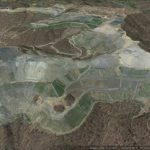
One month, two hearings on mountaintop removal

Silas House: A Remembrance of Jean Ritchie


